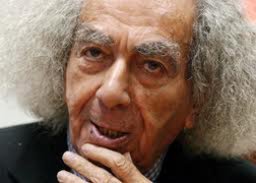

 His 1962 memoir, My Happy Days in Hell, is published in Penguin Modern Classics. It is an incisive account of the demoralising effects of Communism and the horrors of forced labour - but is also very funny, and utterly life-enhancing. The critic Philip Toynbee once wrote: 'Faludy is the man we would all like to be.' Few books say as much about the central, most appalling experiences of the twentieth century. |
Translated from the Hungarian by Thomas Land
If you have any comments on this poem, Thomas Land would be pleased to hear them.